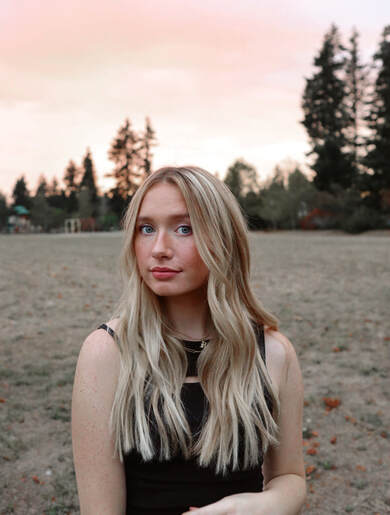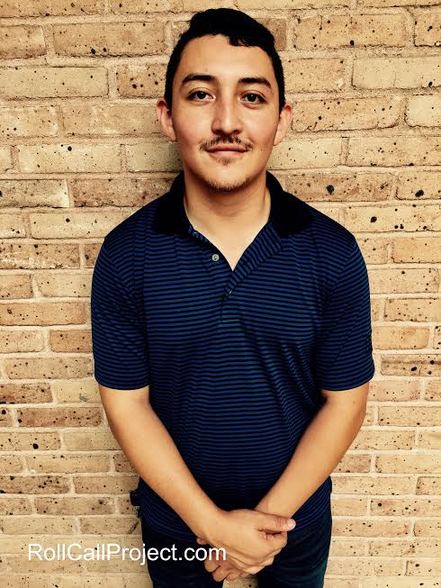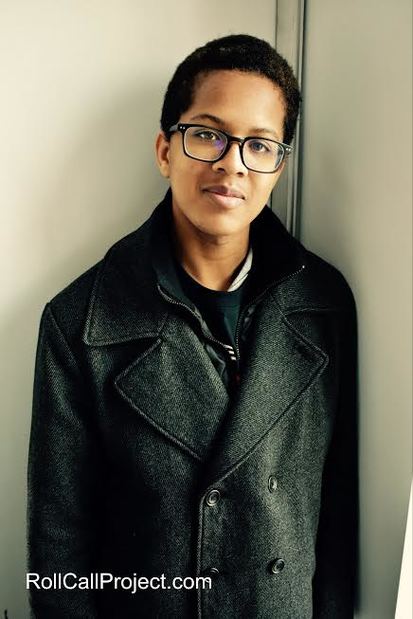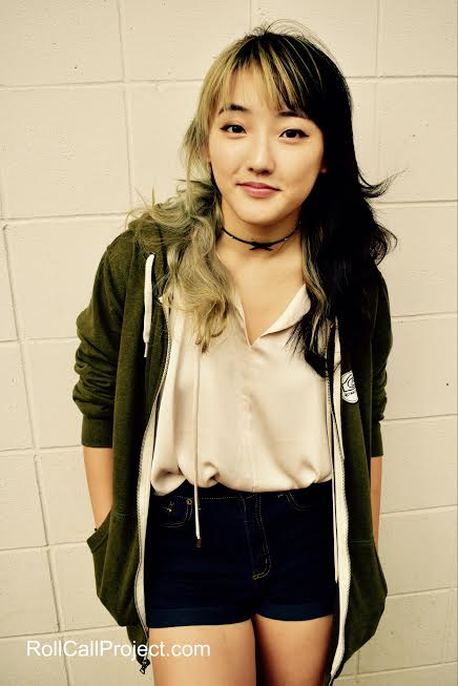 University Student White Heterosexual Female Will be the first in her family to graduate from college Q: What do you have in common with your teachers? On the surface, I’ve been lucky. I have the privilege of being white and identifying as heterosexual. I am also a woman, and so in an educational setting, I have had the privilege of connecting with most of my teachers who have also been white and female. I can also connect with my teachers because I know we both appreciate a good education. I’ve always enjoyed working hard and putting forth my best effort. I struggle, fail, but then succeed. To me, school has been everything. Throughout high school and continuing into university life, I have dedicated myself to my school work and what I felt being a “good” student meant. I was in the top 5% of my high school graduating class, and I have been on the Dean’s List every quarter at the University of Washington. For me, these accomplishments weren’t just about a title, but instead were my gateway to a promising future. In the same way that I have prioritized my education, I believe that a lot of teachers have done the same, as they have chosen school as their career, which is a huge aspect of their lives. Q: Does it matter that students and teachers have things in common? I grew up as a low income student raised by a single mom in a predominantly high income community of two-parent households. Any information on low-income assistance was something that my mother and I had to find for ourselves. This was true when it came to AP testing fees for my high school classes. I was in a lot of AP classes and wanted to take the tests as I knew this may help me obtain college credits in the future, but every test cost $90. $90?! That was too much for my single mother to afford, especially with multiple AP tests every year. My mom looked into it and found out there was a low-income option that would make the tests affordable for my family. This was great until I found out this information was not provided by my teachers. In class, I went up to my AP Government teacher very quietly and asked if I could have a low-income form for the AP test. He didn’t give the response I was expecting. In fact, it was quite the opposite. He looked at me confused as if he was questioning if what I had just asked him was real. He said, “Oh? You need the form for low-income support on the test?” His voice was louder than I had wanted. I could tell from the eyes of my classmates that a lot of them had heard him. The embarrassment set in. “Yes.” “Oh, umm okay well...I actually don’t have those because I don’t normally have to hand them out. You’ll have to go to the office.” As if I wasn’t already feeling alone in asking for this form, he just confirmed that I was indeed alone. Apparently, I was one of the only students he had ever encountered that needed the form. I went to the office and asked for the form. The lady at the front desk laughed at me. Yes, laughed. She then pointed at a basket filled with papers and said nothing. Then the Athletic Director (who had nothing to do with the situation) felt the need to pipe in. He suspiciously asked me how I would possibly need the form for low-income students if I was able to participate in cheerleading. Not that it was any of his business, but I explained that I actually was very fortunate to have a family member that had offered to help me continue in this extremely expensive sport. He didn’t respond and walked away with a smug grin on his face. On that day “connection” was the last thing I felt with the adults I had encountered. I felt alone, embarrassed, and ashamed for something I couldn’t control. No student should ever have to feel that way, which is exactly why having things in common with our teachers is so important. The role of connection between our students and educators is one that we must place more value on. For students, connection is what makes us feel safe, accepted, and validated. It’s what developing humans need. If even one of those adults had been empathetic that day, I wouldn’t have had to feel ashamed for growing up with a single mom in a low-income household. I would’ve felt accepted for who I was and everything I had been through to get to where I was that day. In our education system, it’s not only important that teachers connect with their students, but that all adults in our education system better support kids who are going through life experiences they themselves might not have experienced. We are thrilled to share that Hailey is ROLL CALL's 2020-21 intern! She is in her final undergraduate year at the University of Washington, and she is also a tutor with the Riverways Education Partnership (formerly The Pipeline Project) serving rural and tribal K-12 students. Connect with her on Instagram @haileybrumley. Photo (c) 2020 Jen Kistner
0 Comments
 University Student High School History Teacher-in-Training Mexican DREAMer Heterosexual Male First in Family to Attend College Q: What do you have in common with your teachers? A: Growing up in the southmost part of the country, I believe that I have had a unique experience. The majority of my teachers have been Mexican Americans. I sometimes see myself reflected in their stories about their childhood. We share the same culture and traditions. In Christmas time we all look forward to eating tamales and sharing time with our large, extended families. Although most of my grade school teachers looked similar to me, in college at the University of Texas Rio Grande Valley things changed. Suddenly I was surrounded with Anglo and Asian professors. Sometimes it was difficult to communicate and relate with them. They would tend not to understand the culture of the students. However, I always felt I had home field advantage because they were the outsiders. Recently the University has doubled their efforts to hire Latino professors. Although we do share a common language and Hispanic heritage we are very different. Currently I have a Cuban, a Cuban American, and a Puerto Rican professor. Our customs are very different but it is always interesting to learn about their traditions. I usually find myself making connections between their traditions and mine. I’ve also had Mexican and Mexican-American professors. I can relate more with these professors but even then, they are usually not native to the valley. They come from California, Chicago, and different parts of Mexico. Ultimately, I have always looked up to the few professors who are from the area and are teaching in the area. They usually share the same stories and “have been there done that”. Disclaimer: This is not to say that teachers from other backgrounds and cultures are bad teachers. At the end of the day they have all been great teachers. A teacher’s role is to teach, and I have learned… A LOT! Q: Does it matter that students and teachers have things in common? A: I think it is very important to have that connection between student and teacher. As a future teacher, I want to build that rapport with my students. I know that in the question above I focused on ethnicity a lot because that is what came to mind at first. But thinking about it we do not have to be from the same ethnic background, race, religion, sex or socioeconomic status to have things in common. The key is to respect and celebrate each other’s differences rather than point them out or try to hide them. My whole teaching philosophy is centered around the ability to celebrate diversity and be proud of the differences in the classroom and in our community. We live in a great country that even with all its flaws, it still remains the land of opportunity for all, although some have more opportunities than others. But that is what education is for and that is why I want to be an educator. I want to give all students the tools necessary to have an opportunity to succeed and close the achievement gap. Once again this is where having something in common comes to play. I am part of that achievement gap and have lacked opportunity so I can relate. I believe that the only thing that a student and teacher should have in common is acceptance. If the teacher and the student have acceptance of each other’s differences then they will forget about pint pointing differences and focus more on finding things in common. Similarities are not always dependent on racial factors. Wilbert is currently a university student preparing to become high school history teacher. He is a DREAMer--born in Mexico and raised in the Rio Grande Valley since he was 3 years old. He plans to stay in The Valley to teach with the hopes of giving back to the community that supported him. Photo (c) 2017 Kristin Leong  University Student Black Male Q: What do you have in common with your teachers? A: One thing that I always thought that was lacking in my ability to relate to teachers is that none of the teachers in my life have been black, which really shows the lack of diversity in education. However, I typically have had a lot of common interests with my teachers in high school. I remember frequently nerding out over the newest tech trends with my computer programming teacher and talking about the future of Artificial Intelligence with the head of my high school department. In both high school and college, I have found that my teachers and I both strive to make the world a better place. Many times when I asked some of them why they decided to teach despite the growing wage gap they would say that they love what they do and they feel it is their responsibility to create passionate and engaged students. Q: Does it matter that students and teachers have things in common? A: Yes, I wholeheartedly believe that it does matter that teachers and students can relate to each other. Because of the common interests I shared with the teachers and administrators in my life, I have always felt much better about being able to express myself in academia. Instead of feeling like classes where a prison where I had to purely learn everything in the same way as others, it became apparent that everything that I was learning could be applied to areas of interest. For instance, I found chemistry really challenging at times. So my chemistry teachers, knowing that I loved neuroscience suggested that I try to relate chemistry to the brain by looking into the way neurotransmitters work. After that, I had a whole new outlook on not only the properties of chemistry, but also on the way external stimuli can affect the ever growing and shaping neurological pathways in our own minds. Because of how cool I found the subject of Neurochemistry I got the opportunity to do my high school chemistry final on the effects of THC on the brain and because of how much I enjoyed doing that project I even decided to pursue a degree in Neuroscience. This is to show you that when you are able to relate to a teacher and when they have a genuine interest in you and your passions, education can be taken from something one dreads to something to be loved and passionate about to no end. Education has the potential to change the lives of children and be something that they will treasure forever, but that depends on how much the teacher and the student are able to work together. It also may depend on how much the teacher is able to inspire that student. Even now in college, I am still able to connect with my teachers about different parts of the subject they teach that I find interesting. In general, I have found that they really appreciate it because it shows passion about the subject they teach and they too enjoy relating to their students. Cameron is a freshman at Connecticut College where he is a TED-Ed club leader. Connect with him on Twitter @Cameronaaron4. Photo (c) 2017 Kristin Leong  University Student Korean-American First Generation American Female LGBTQ Q: What do you have in common with your teachers? A: Often, I don't have that much in common with my teachers, unfortunately. I respect all of the teachers who have been in my life, and I've been lucky enough to have been in the care of several who were exceptional, but I'd be hard-pressed to name a teacher I could be grouped with in a game of Guess Who without tipping the whole board. What I share with my teachers is typically what I share with my city: we're WEIRD (Western, Educated, Industrialized, Rich, and Democratic). In short, traits that don't really do much, on their own, to expand students' horizons or kindle a real desire to sacrifice the wealth we take for granted to spark change in the world that levels the playing field. Q: Does it matter that students and teachers have things in common? A: Yes, when--as exceptions to the rule--I find that I share identities with my teacher, I am often also blessed with a mentor who can help me navigate my identities as they did at my age. Teachers have such a unique, pivotal role in the lives of so many students. Students turn to their teachers for help on so many things, especially as they're stumbling through elementary, middle, and high school and learning to suppress their "unfavorable" identities and express others. This is the period of life where kids come back home upset that their packed lunches are "too Asian", that their way of dressing or acting is somehow "gay" and therefore offensive, or that their economic standing is something to be ashamed of. Since they seek to discipline us and guide us, our teachers are in effect 6-hour+ daily stand-ins for our parents. And like parents, love them or hate them, they shape our relationships with ourselves immensely. For better or for worse, they hold this sway when we are at our most vulnerable and most desperate to fit in. Unfortunately, with a primarily cishet female, white, able-bodied, and college-educated pool of teachers, this influence may be for the worse. This group is the group to shape students ideas of how they or their parents should look and act in an America where white, straight, rich and able-bodied people are still upheld as the golden standard. This group is so often unhelpful when the really tough questions come up--the ones that make or break a student's desire to succeed in school, the ones that at their core ask "do I belong here?" or "is the way I'm feeling valid?" This group is ill-equipped to handle transitioning students, first-gen students, students of color, and all others who don't fit neatly into the Guess Who board. This group needs to change, so that students can find mentors to connect with and rely on. Bae is getting ready to start her second year at Stanford University where she is the Co-Chair of the student group Queer & Asian. See her beautiful and meticulous notes from class on Instagram at @its_the_bae_area. Photo (c) 2017 Kristin Leong |
ROLL CALLHumanizing the gaps separating teachers and students. Archives
December 2020
Categories
All
|
Proudly powered by Weebly

 RSS Feed
RSS Feed